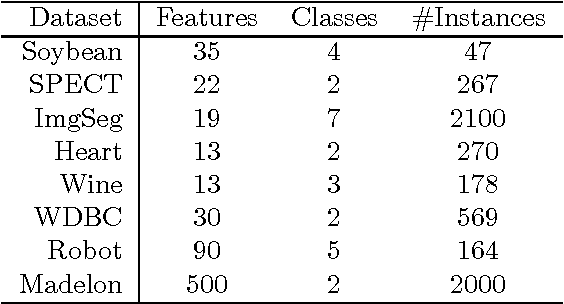Cluster Forests
Paper and Code
May 23, 2013



With inspiration from Random Forests (RF) in the context of classification, a new clustering ensemble method---Cluster Forests (CF) is proposed. Geometrically, CF randomly probes a high-dimensional data cloud to obtain "good local clusterings" and then aggregates via spectral clustering to obtain cluster assignments for the whole dataset. The search for good local clusterings is guided by a cluster quality measure kappa. CF progressively improves each local clustering in a fashion that resembles the tree growth in RF. Empirical studies on several real-world datasets under two different performance metrics show that CF compares favorably to its competitors. Theoretical analysis reveals that the kappa measure makes it possible to grow the local clustering in a desirable way---it is "noise-resistant". A closed-form expression is obtained for the mis-clustering rate of spectral clustering under a perturbation model, which yields new insights into some aspects of spectral clustering.
 Add to Chrome
Add to Chrome Add to Firefox
Add to Firefox Add to Edge
Add to Edge